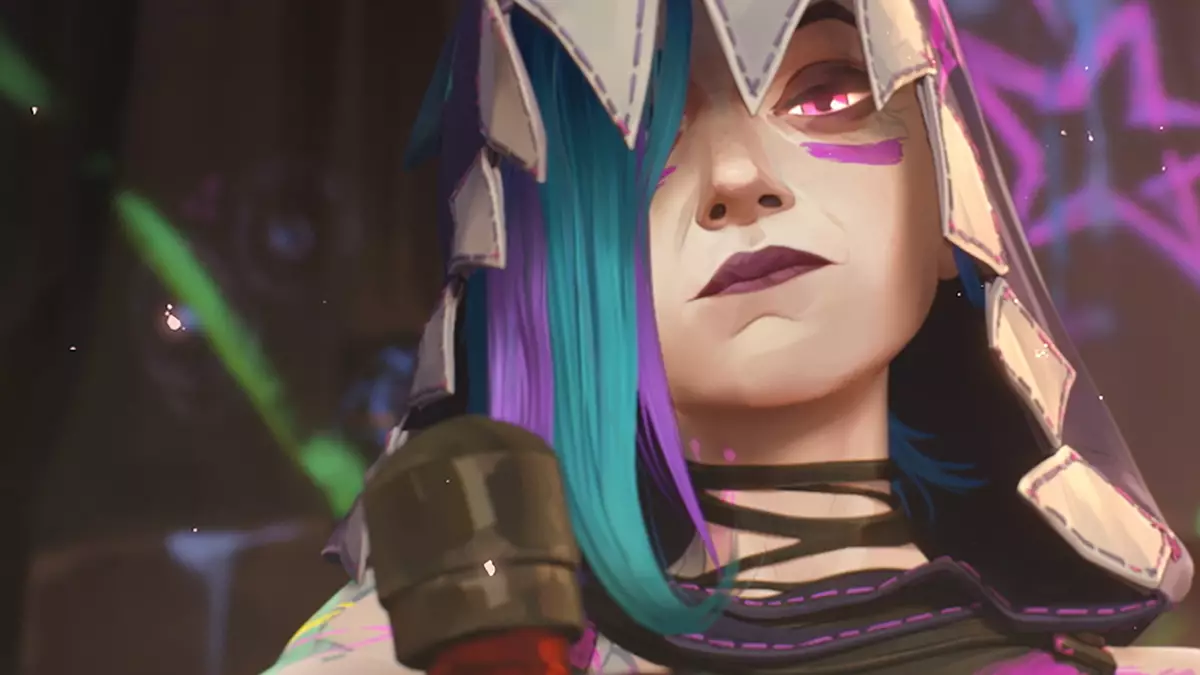The animated series “Arcane,” a notable spinoff of the immensely popular video game League of Legends, has made headlines again with the recent launch of its second—and purportedly final—season on Netflix. Fans eagerly awaited the continuation of the tumultuous story surrounding characters like Vi and Jinx. However, alongside the excitement, a surprising rumor surfaced: could it be true that “Arcane” was originally designed for a sprawling five-season narrative? This question led to discussions among fans and critics alike, revealing the complexities behind the development of the show.
The speculation that “Arcane” might have been intended to stretch across five seasons stemmed from a report by Variety, which hinted at Riot Games’ ambitious plans for the franchise. According to co-creators Christian Linke and Alex Yee, however, this was an exaggeration born from misunderstood humor rather than a serious development strategy. They clarified that the trajectory of “Arcane” was always envisioned as a two-season narrative. The confusion seems to have originated from an old jest by former Riot Games CEO, Nicolo Laurent, who playfully suggested extending production to five seasons during a behind-the-scenes discussion.
Linke reflected on that moment with a mixture of amusement and bewilderment, explaining how Laurent’s comment was meant to alleviate the stress of waiting for approval while simultaneously granting them an absurdly ambitious scope. “It was all in good fun,” Linke remarked. “We never planned for more than two seasons. The whole five-season thing was merely a bit of tomfoolery.”
The focus on storytelling is a cornerstone of “Arcane.” With Vi and Jinx at the heart of its narrative, the series has expertly woven their complex relationship into the fabric of a richly designed universe. Linke and Yee emphasized that the planning for “Arcane” was much more grounded; they aimed to create a compelling story arc wrapped up neatly across the two seasons. To achieve this ambition, the developers needed immediate support from Riot Games for a quick turnaround on subsequent installments.
In essence, the team was seeking both trust from the higher-ups and a collaborative environment to cultivate additional content swiftly after the initial launch. The foresight for the show was pragmatic; given the extensive and lengthy production process for animated series, they inherently acknowledged the necessity of early season development to maintain momentum for storytelling.
Financial Implications and Industry Standards
A significant aspect of the discussion around “Arcane” is its budget. With an extravagant total cost reaching approximately $250 million for two seasons, many may perceive this expenditure as excessive for an animated series. Nevertheless, Riot’s Chief Product Officer, Marc Merrill, expressed satisfaction with this investment, arguing that it was crucial to deliver a series worthy of the audience’s investment. “We wanted to make sure the product delivered is in line with what our players expect,” he stated.
This level of financial commitment illustrates the growing trend within the animation industry, where high production values are increasingly adopted to attract and retain audiences. The production standards set by “Arcane” may not only redefine what viewers expect from animated adaptations but also elevate the genre’s overall creative integrity.
As the second season premieres, it leaves fans both satisfied and curious about potential future directions. While the narrative structured around Vi and Jinx is purportedly complete, both Linke and Yee hinted at the idea of continued stories within the “Arcane” universe. The notion that they could extend beyond the initial two-season plan is tantalizing but remains speculative. Linke noted that their primary focus was always on crafting a compelling and cohesive story with room for expansion if the opportunity arose.
“Arcane” stands as a testament to calculated storytelling meshed with striking animation. Whether viewers will see more of this universe remains an open question. However, the enthusiastic reception of the second season illustrates that fans are willing to invest their time in this richly crafted world, an endorsement that could pave the way for more stories emanating from the lore of League of Legends.


Leave a Reply